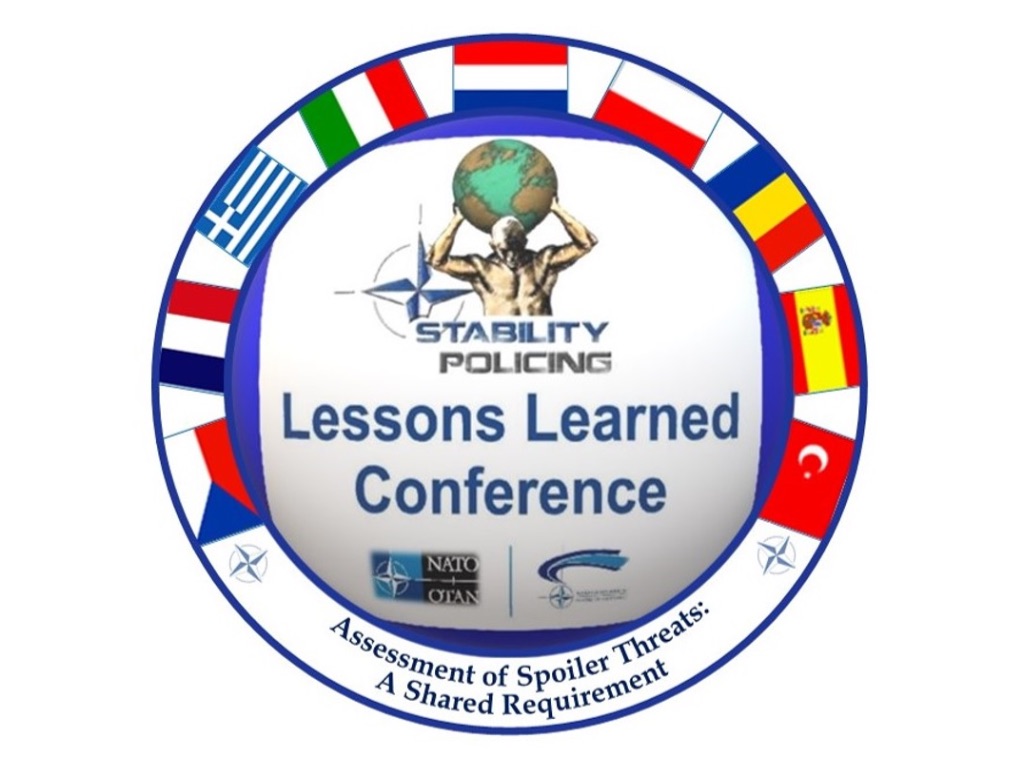Assessment of spoiler threats – a shared requirement

We are pleased to present the summary report on “Assessment of Spoiler Threats – A shared Requirement” to NATO Supreme Allied Command Transformation (SACT), based on the outcomes of the first NATO Stability Policing (SP) Lessons Learned (LL) Conference, and the subsequent third SP LL Workshop (WS), both organised and hosted by the NATO SP Centre of Excellence (SP COE) from 8 to 10 October 2019.
During the one-day conference on the 8th of October, eight key-note speakers, ranging from the United Nations (UN), the North Atlantic Treaty Organization (NATO), the European Union (EU) and the African Union (AU), to the US Special Inspector General for Afghanistan Reconstruction (SIGAR), and academia, enlightened an audience of more than 100 attendees and 240 YouTube® followers.
Following the Conference, the WS, with Subject Matter Experts and practitioners from different military, police, civilian, national and international organizations, took place building on the conclusions of the previous day’s convention. The summary report covers the results of their analysis, discussion and supporting material on Spoiler Threats.
Key findings from which include that:
- The lack of a methodology to assess spoiler threats undermines peace processes and, in the past, has caused failures in missions (several of which have returned to conflict within only a few years);
- Stability Policing can play an important role in the early assessment and identification of spoilers, by virtue of its intelligence-led policing capabilities.
This document will in turn form the basis for developing a common and sharable methodology aimed at assessing spoiler threats, by crafting a standard tool for use by planners in destabilized scenarios across the full spectrum of operations. As a consequence, an associated training curriculum, hopefully still under ACT’s auspices, will be created.
Echoing the recommendations of those, who brilliantly contributed to this piece of work, we “draw your attention to the requirement to influence decision makers of the need to carry out a ‘spoiler threat assessment’ prior to intervening in any conflict or crisis response operation. Only by doing so, will we be able to set an effective and sustainable exit strategy from the very outset of any mission, thus helping to ensure long-term peace and development” said Colonel Giuseppe De Magistris, NSPCoE Director.